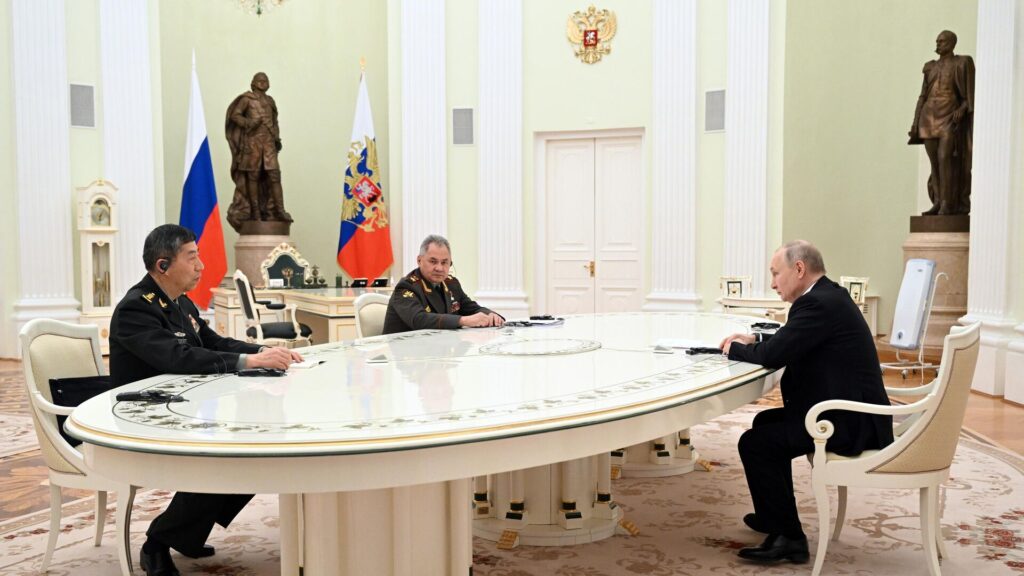In today’s multipolar world, the importance of building strong alliances and defense cooperation cannot be overstated. As countries vie for power and influence on the global stage, the need for collective security and shared interests has become more crucial than ever before. In this article, we have explored the significance of strong alliances in maintaining peace and stability amidst geopolitical tensions. Defense cooperation plays a central role in enhancing military capabilities, fostering trust among allies, and promoting effective responses to security threats. Through successful defense cooperation, countries can leverage their resources, enhance deterrence, and address common challenges in a rapidly changing world.
Building Stronger Alliances: The Importance of Defense Cooperation in a Multipolar World
In today’s global landscape, the world is becoming increasingly multipolar, with multiple countries vying for power and influence on the international stage. As competition and tensions between nations grow, the need for strong alliances and defense cooperation has become more imperative than ever before. In this article, we will explore the significance of building stronger alliances in a multipolar world and discuss how defense cooperation plays a crucial role in maintaining peace and stability.
Heading 1: The Rise of Multipolarity
The traditional bipolar world order that emerged after World War II, with the United States and the Soviet Union as the two superpowers, has long since given way to a more complex and multipolar system. Today, we see a world where countries such as China, Russia, the European Union, and emerging powers like India and Brazil are all vying for influence and power on the global stage. This multipolar world presents new challenges and opportunities for countries as they navigate through shifting alliances and geopolitical rivalries.
Heading 2: Importance of Strong Alliances
In a multipolar world, strong alliances play a crucial role in safeguarding national security and promoting shared interests among countries. By forming strong alliances, countries can enhance their collective security, leverage their resources, and project power more effectively on the global stage. Strong alliances also contribute to promoting stability, resolving conflicts, and addressing common challenges such as terrorism, cybersecurity threats, and climate change.
Heading 3: Defense Cooperation: A Key Component
Defense cooperation is an essential component of building stronger alliances in a multipolar world. By working together on defense and security matters, countries can enhance their military capabilities, improve interoperability, and foster trust and confidence among allies. Defense cooperation also enables countries to share intelligence, conduct joint military exercises, and coordinate responses to security threats more effectively.
Heading 4: Benefits of Defense Cooperation
There are several benefits of defense cooperation in a multipolar world. Firstly, defense cooperation enhances deterrence by signaling unity and resolve among allies, thus deterring potential adversaries from taking aggressive actions. Secondly, defense cooperation enables countries to pool their resources and capabilities, thereby reducing the burden and cost of maintaining a robust defense posture. Lastly, defense cooperation fosters mutual understanding and trust among allies, which is essential for effective coordination and cooperation in times of crisis.
Heading 5: Case Studies: Successful Defense Cooperation
There are several successful examples of defense cooperation in a multipolar world. For instance, the North Atlantic Treaty Organization (NATO) has served as a cornerstone of transatlantic security for over seven decades, bringing together 30 member countries to promote peace and security in Europe and North America. Similarly, the Five Eyes alliance, comprising the United States, United Kingdom, Canada, Australia, and New Zealand, has been instrumental in intelligence-sharing and coordination on security matters.
Heading 6: Challenges and Opportunities
While defense cooperation offers numerous benefits, there are also challenges and opportunities that countries must consider in building stronger alliances in a multipolar world. Challenges include differences in strategic priorities, varying levels of military capabilities, and diverging threat perceptions among allies. Opportunities, on the other hand, include leveraging emerging technologies, enhancing military interoperability, and expanding defense partnerships with like-minded countries.
Heading 7: Conclusion
In conclusion, building stronger alliances and enhancing defense cooperation are critical imperatives in a multipolar world. By working together on defense and security matters, countries can enhance their collective security, promote stability, and address common challenges more effectively. As the world becomes more complex and interconnected, countries must prioritize defense cooperation as a key pillar of their foreign policy to navigate through the challenges and opportunities of a multipolar world.
